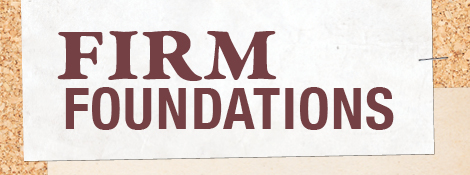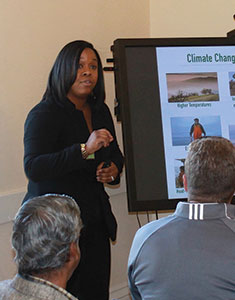Jill Randles
Assistant vice provost and assistant dean for undergraduate education Jill Randles manages the university’s programs to boost undergraduate student success – including an array of first-year programs that get new students off to a flying start.
What follows are edited excerpts from a recent UMBC Magazine interview with Randles.
Read our full story about how staff built UMBC’s infrastructure for student success.
On her early days at UMBC:
I started at UMBC in 1992, so I started the same year Freeman became president. He’s the only president I’ve known at UMBC… I came here thinking I would do a Ph.D., and become a licensed counselor – a practicing counselor. In the course of that time, I needed a job and I am still here.
The job was as an evening student services counselor, and if you think back to 1992, UMBC had Pine as our email, half of our information was not online, and we did have several programs that students could come pretty close to completing in the evening. My office was a little reconverted storage room right off the main registrar’s desk, which is still an office for someone over there.
I was the advisor. I was the person who did student IDs and laminated them, I did everything for them. We were a one stop shop for anybody at night. It was a great job; I enjoyed working with that population. It was a lot of nontraditional students, and learned a lot about the campus. I had to know a lot about the campus. I was even the person who jump started cars in the winter.
There weren’t many things open at night then. There was no place to get a drink. There was no place to get food. Nothing. It was vending machines and whatever you brought with you.
What makes UMBC special:
I have had the privilege of doing things that, at other institutions, I would have never been considered for. Yes, there is a hierarchy that you must respect, and that’s true of any institution. But we’re not so ingrained in what we do at UMBC that we don’t integrate people into new places all along the way. It’s something I just don’t think institutions that are older and more traditional do.
I do think UMBC is a community of care, and I don’t take that for granted. I think if we take it for granted, it can change.
We don’t always have a lot of funding for all of our good ideas. In my experience, UMBC has never seen a good idea it didn’t like, which is a plus and a negative. We are learning how to be more strategic about the things we think are good ideas to be funded and implemented, and I think that will serve us well. But I would not want this institution to be any less dynamic. I think that is what keeps it interesting and creative. But we have to be thoughtfully dynamic. For example, student success models. What are the things we really want to establish? How do we establish those, and then still manage experimental change, and stay a dynamic place?
Tags: Winter 2016



